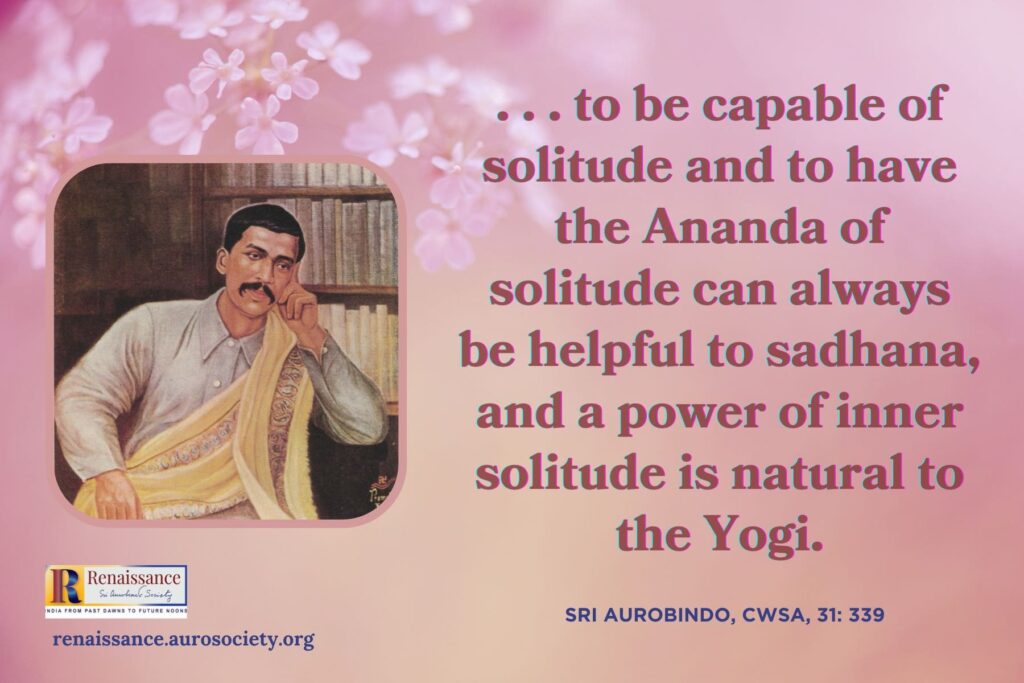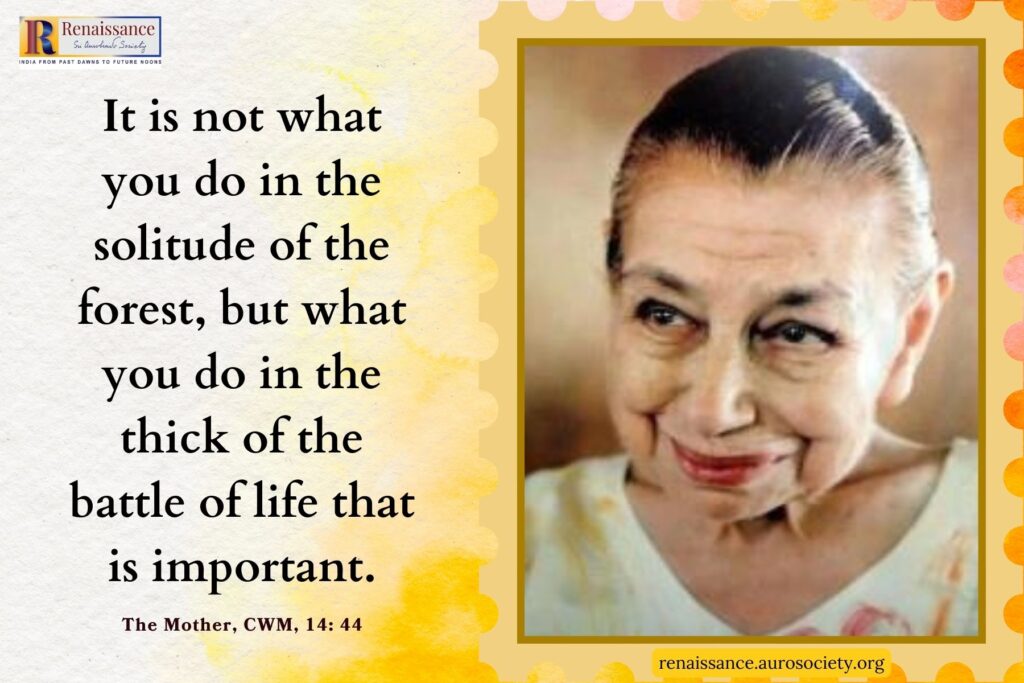Vol. III, Issue 6
Author: Sri Aurobindo
Editor’s note: We feature a few selected letters of Sri Aurobindo where he gives very helpful practical advice on how a sadhak on the path of Integral Yoga should cultivate equality with regard to interactions and relations with others.

Cultivating Goodwill for All
The inequality of feelings towards others, liking and disliking, is ingrained in the nature of the human vital. This is because some harmonise with one’s own vital temperament, others do not; also there is the vital ego which gets displeased when it is hurt or when things do not go or people do not act according to its preferences or its idea of what they should do.
In the self above there is a spiritual calm and equality, a goodwill to all or at a certain stage a quiet indifference to all except the Divine; in the psychic there is an equal kindness or love to all fundamentally, but there may be special relations with one—but the vital is always unequal and full of likes and dislikes.
By the sadhana the vital must be quieted down; it must receive from the self above its quiet goodwill and equality to all things and from the psychic its general kindness or love. This will come, but it may take time to come.
You must get rid of all inner as well as all outer movements of anger, impatience or dislike. If things go wrong or are done wrongly, you will simply say, “The Mother knows” and go on quietly doing or getting things done as well as you can without friction. . . . you must get your inner poise in a quiet vital, for only so can the Force be used with its full possible success.
***
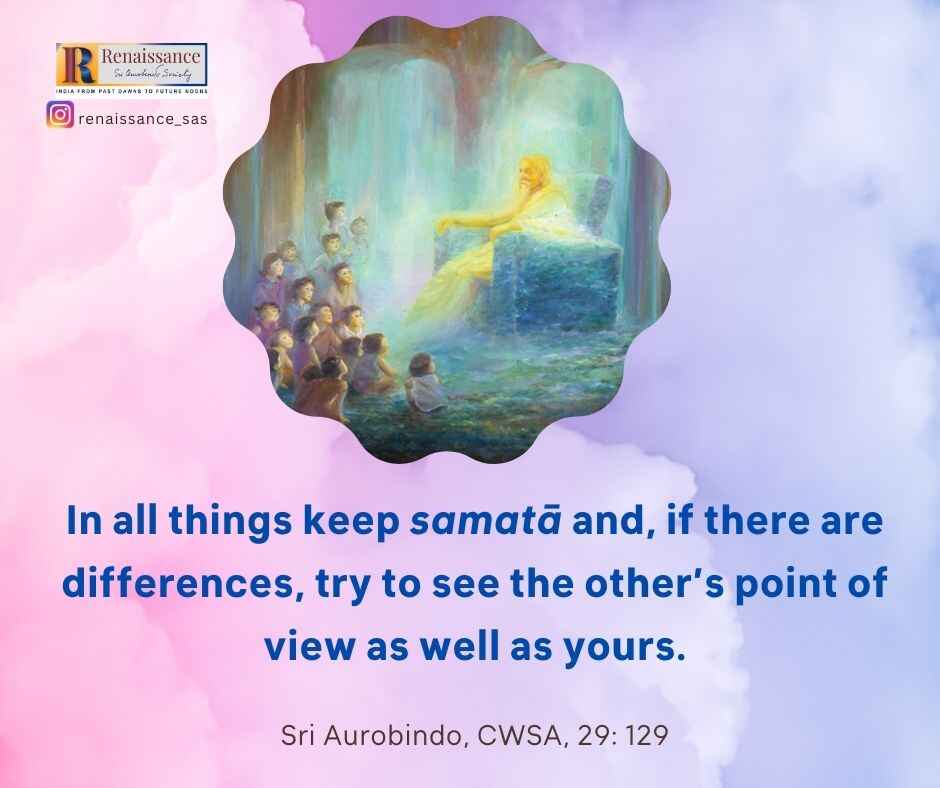
You must certainly give up all personal feelings of that kind [resentment, ill will]. Also you must not think if people differ from you and express their difference of opinion freely that that arises from personal hostility.
In all things keep samatā and, if there are differences, try to see the other’s point of view as well as yours.
***
Test of Equality
There can be no firm foundation in sadhana without equality, samatā.
Whatever the unpleasantness of circumstances, however disagreeable the conduct of others, you must learn to receive them with a perfect calm and without any disturbing reaction. These things are the test of equality. It is easy to be calm and equal when things go well and people and circumstances are pleasant; it is when they are the opposite that the completeness of the calm, peace, equality can be tested, reinforced, made perfect.
~ Sri Aurobindo, CWSA, Vol. 29, p. 129
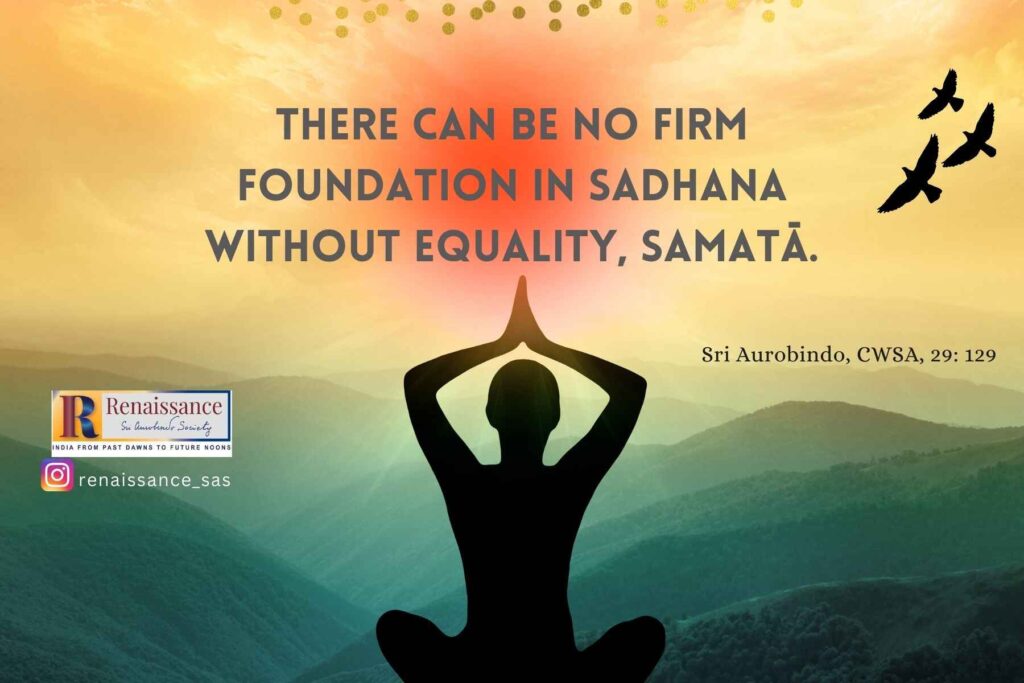
Think Less of Yourself
As for the inconveniences, you should take them as a training in samatā. To be able to bear inconveniences is one of the most elementary necessities if one wants to enter into the true spirit of Yoga.
***
The proper thing is to see all with an unmoved calm, both the “good” and “bad”, but as a movement of Nature on the surface. But to do this truly without error or egoism or wrong reactions needs a consciousness and knowledge that is not personal and limited.
***
If you want to have knowledge or see all as brothers or have peace, you must think less of yourself, your desires, feelings, people’s treatment of you, and think more of the Divine—living for the Divine, not for yourself.
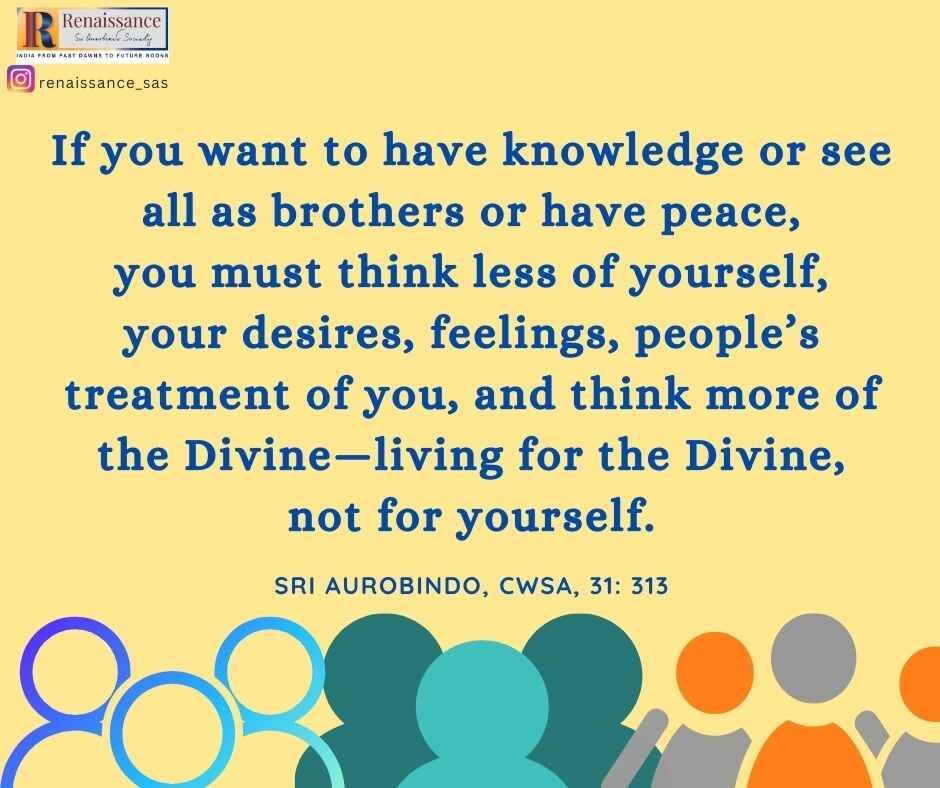
Let Nothing Disturb
To become entirely indifferent to the good and bad opinion of others, especially those who are or were near, and stand on the Truth alone is very difficult; some reaction of the old nature can easily come across; but if one remains calm and firm within, these surface reactions quickly disappear and their rejection helps the remnants of the old nature to disappear.
***
If you look closely, you will see that all these things—the rudeness of one, the anger of another—are exceedingly slight things which should be received with indifference. Do not allow them to trouble you so much.
The one thing of supreme importance is your sadhana and your spiritual growth. Let nothing touch or disturb that.
***
It is not good to allow yourself to be upset so much by what others say or do. . . There is a quietude and happiness which you can find by living in yourself in contact with the Divine which you will never get from outside.
***
. . . it is certainly always possible to get a lowering of consciousness from someone who is always gossiping or talking of her fears and difficulties. As for being kind, there is nothing harmful in kindness itself, but there is no reason why you should allow another to invade you with things you don’t want to feel or hear.
There is a measure in all things—and besides one should keep oneself inwardly free and not admit that the vital movements of others should be a cause of difficulties—one has enough to do combating one’s own.
~ Sri Aurobindo, CWSA, Vol. 31, pp. 314-315
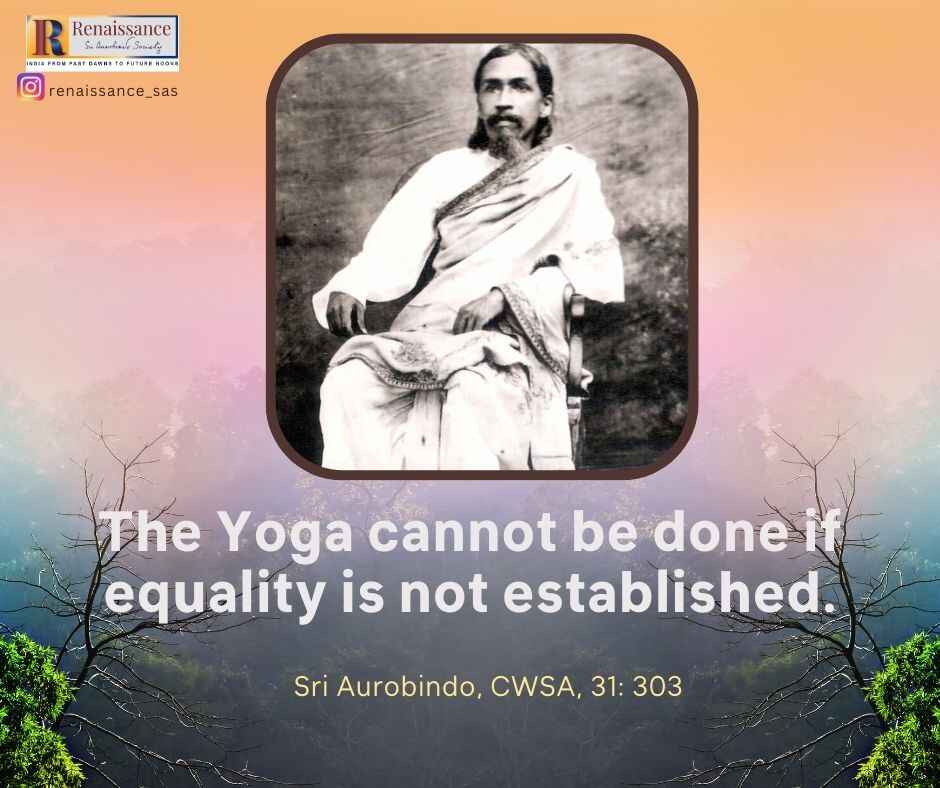
The Yoga cannot be done if equality is not established.
Personal relations must be founded on the relation with the Divine in himself and the Divine in all and they must not be “ties” to pull one down and keep bound to the lower nature but part of the higher unity.
Practicing Equality in Ordinary Life
The best way to prepare oneself for the spiritual life when one has to live in the ordinary occupations and surroundings is to cultivate an entire equality and detachment and the samatā of the Gita with the faith that the Divine is there and the Divine Will at work in all things even though at present under the conditions of a world of Ignorance.
Beyond this are the Light and Ananda towards which life is working, but the best way for their advent and foundation in the individual being and nature is to grow in this spiritual equality. That would also solve your difficulty about things unpleasant and disagreeable.
All unpleasantness should be faced with this spirit of samatā.
***
When one is living in the world, one cannot do as in an Ashram—one has to mix with others and keep up outwardly at least ordinary relations with others. The important thing is to keep the inner consciousness open to the Divine and grow in it.
As one does that, more or less rapidly according to the inner intensity of the sadhana, the attitude towards others will change. All will be seen more and more in the Divine and the feeling, action, etc. will more and more be determined, not by the old external reactions, but by the growing consciousness within you.
***

The difficulty which you experience from relatives and others is always one that intervenes as an obstacle when one has to practise the sadhana in ordinary or unfavourable surroundings.
The only way to escape from it is to be able to live in oneself in one’s inner being—which becomes possible when the responsiveness and luminosity. . . increase and become normal, for then you are constantly aware of your inner being and even live in it—the outer becomes an instrument, a means of communication and action in the outer world.
It is then possible to make the relations with people outside free from tie or necessary reaction—one can determine from within one’s own reaction or absence of reaction; there is a fundamental liberation from the external nexuses,—of course, if one wills it to be so.
***
The life of saṁsāra is in its nature a field of unrest—to go through it in the right way one has to offer one’s life and actions to the Divine and pray for the peace of the Divine within. When the mind becomes quiet, one can feel the Divine Mother supporting the life and put everything into her hands.
Also read:
What is Yogic Samatā?
~ Design: Beloo Mehra


